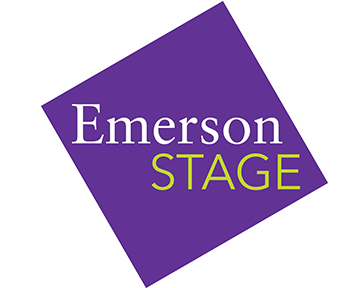Emerson Stage Opens Season with Caucasian Chalk Circle
Emerson Stage Opens 2016-2017 Season
The Caucasian Chalk Circle
By Bertolt Brecht
Translated by Frank McGuinness
Directed by Courtney O’Connor
When a noblewoman abandons her son in the heat of a civil war, the child is taken by a servant girl, who sacrifices everything in order to respectfully raise the young boy as her own. When the biological mother returns, it must be decided who is the rightful mother of the boy. This fresh and powerful translation of Brecht’s incendiary masterpiece explores displacement, sacrifice, and classism, and will leave viewers inspired and impassioned.
Our dramaturg, Emily Wingertzahn, provides a closer look into the show:
Q- Where is Caucasian Chalk Circle set?
A- Playwright Bertolt Brecht locates his play in a fictionalized version of Georgia, a country located in the Caucasus region. Roughly the size of Montana, the Caucasus finds itself placed adjacent to Russia, and between Turkey and Iran to the south, with the Black Sea to its west, and the Caspian Sea to its east. The region is made up of Russian republics such as Chechnya, and the independent countries of Georgia, Armenia, and Azerbaijan. With a total population of around 20 million, this deeply culturally diverse region is home to over 50 distinct ethnic groups. While oftentimes thought of as a predominantly Muslim region, the Caucasus is home to many belief systems; for example, Azerbaijan is mostly secular, and Georgia has been predominantly influenced by Christianity since the fourth century. The Caucasus Mountain Range, which separates the Black and Caspian seas, helps provide for the containment of such varied cultures in such a small geographical area. While close in distance, traveling from, say, Georgia to Chechnya would be quite an arduous task, requiring one to traverse the high mountain passes only open during one part of the year. In Caucasian Chalk Circle, our determined heroine Grusha dares to make a similar journey to insure the safety of her well-loved child.


Q-Why was this important to Brecht?
A-While we may never have a perfectly clear answer, we can look to some of Brecht’s theoretical writings to get a better picture of the importance of location in Brechtian theater. The chief goal of Brechtian–known as Epic– theater was to elicit a powerful, intellectual, and critical response from an audience surrounding the present state of society, which would, in turn, lead each audience member to creating and enacting social change. In his most comprehensive theoretical writing, “A Short Organum for the Theater”, Brecht writes, “And if we play works dealing with our own time as though they were historical, then perhaps the circumstances under which he himself acts will strike him as equally odd; and this is where the critical attitude begins”. Known as historification, this technique of Brecht’s arises from his belief that if one were to simply tell a contemporary story, as many naturalist dramas of the time did, an audience may not achieve a critical perspective. However, if the story were placed in the past or in a culturally different geographical location suffering from thematically parallel social injustices, such as the civil-war torn Georgia of Caucasian Chalk Circle, those similar injustices plaguing contemporary society could be illuminated. Brecht hoped his audience would be more perceptive of the social injustices that yielded situations in which people felt compelled to act in such a way, and then connect them to similar social injustices he/she witness affecting other individuals in their own contemporary society, while always maintaining a critical attitude. In our production, we ask our audience to question how we assess justice and how we react in times of conflict. The qualifications for motherhood and family are tested, and our theater is transformed into a home. While Brecht encourages us to be critical, our production also seeks to highlight the good that surrounds us everywhere.

Caucasian Chalk Circle runs from September 29 – October 2 in the Greene Theater, located within Emerson College’s Tufte Performance and Production Center.
Tickets are $12 for general admission, $8 for the Emerson community, and $6/each for groups of 10 or more. For more information, please call (617) 824-8000 or visit www.aestages.org.
We look forward to seeing you!
All of us at Emerson Stage.

